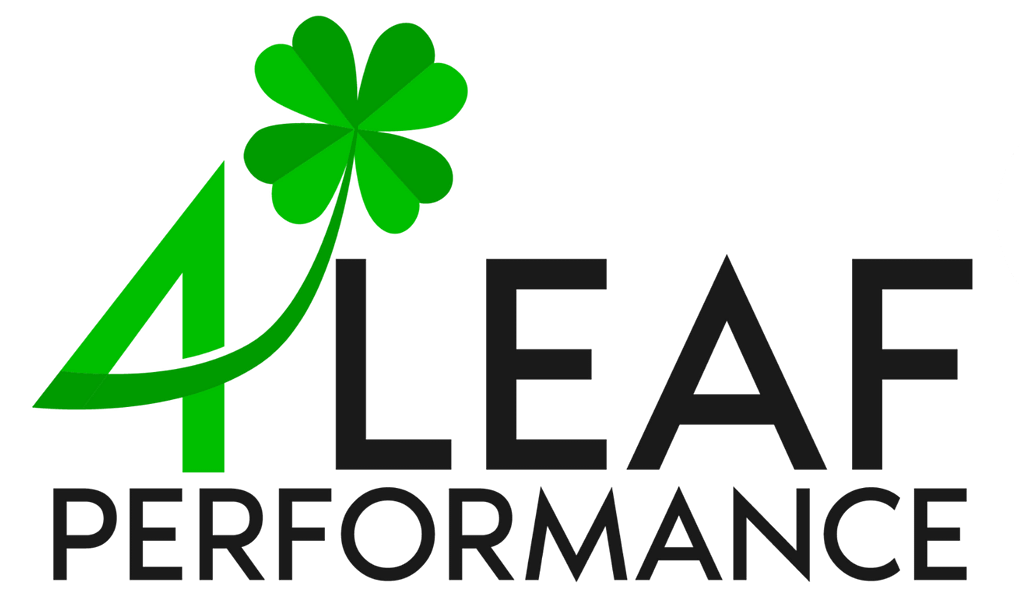Motivation and purpose often intersect with success and leadership. Understanding the ‘why’ behind our actions and may be the key to unlocking our fullest potential in both personal and professional realms.
Why do certain challenges invigorate us while others drain us? How do we adapt to our ever-changing environment with confidence? How do you create a roadmap to achieve personal and professional success? Andrew Lamb and Luke Dillon, 4 Leaf Performance’s WHY.os certified business coaches, sit down and share their insights on how a deeper understanding of one’s why can help guide us towards a more fulfilling path in life.
Balancing Motivation and Focus in the Workplace Through WHY.os
In this thought-provoking interview, Luke Dillon and Andrew Lamb delve into the ‘Why’ Controversy, discussing the WHY.os tool’s effectiveness in enhancing personal and organizational growth. They debate whether understanding one’s ‘why’ primarily serves as a source of motivation or if it risks becoming a distraction from essential goals. This comprehensive dialogue offers insights into how self-awareness and team alignment can lead to success, while also considering potential pitfalls.Understanding Your Why: Key to Success in Business and Life
In the quest for success, both personally and professionally, understanding the ‘why’ behind our actions is crucial. This understanding can transform how we approach our goals, view our failures, and define success.
Andrew Lamb: How has understanding your personal why transformed your perspective on success and failure?”
Luke Dillon: I think for me, understanding my why really enabled me to look at where I hadn’t been successful, whether that was in a business enterprise or environment or whether it was in a collaboration, to look at it and say, okay, well, if I understand what my drivers are, as I do now, having been through the WHY.os discovery, to be able to look at that and say, okay, now I do understand why that didn’t work or why this didn’t.
And my why is a better way. So I’m able to now look at it and say, okay, well, that was the frustration that led to that partnership not working, or that’s what enabled me to really add value to that team and helped us achieve the next level. So it’s been incredibly insightful and valuable to me to help me understand where I add value, how I add value to a team, and to help me understand why I went wrong in certain situations or businesses.
Dillon’s reflection on his journey of self-discovery through WHY.os highlights a critical shift in perspective. By understanding his intrinsic motivators, he was able to reassess past experiences, not as mere failures but as valuable lessons. This introspection, guided by an understanding of his ‘why’, enabled him to identify both the strengths he brings to a team and the reasons behind past challenges.
Andrew Lamb: How does this align or deviate from the societal definition of success?
Luke Dillon: I think it aligns with it, Andrew. I think where it aligns is if you look at, and I mean, I think success is…that’s a moving target, isn’t it? If you ask a boomer what success is, and you ask a millennial what success is, you’re gonna get two very different answers. So, I think understanding your why will help you look at where you can succeed and where you can be successful.
Societies’ definition of success does come into play to some extent, but when you understand how you can achieve success as to how you perceive it and knowing what your why is and what’s going to give you that feeling of success or put you into a position where you can succeed, I think that’s where the alignment lies.
Success, often viewed through a societal lens, varies greatly across generations and cultures. However, by understanding one’s ‘why’, it becomes possible to redefine success on personal terms while still recognizing societal influences. This approach enables a more authentic pursuit of success, one that resonates deeply with personal values and aspirations. Understanding your ‘why’ is not just about aligning with societal norms but also about embracing individuality in defining success.
The Importance of Knowing Your Why and Preserving Individuality in Team Dynamics

Andrew Lamb: On the WHY.os, it really talks about you as an individual. So understanding individuality, is this a positive or a negative?
Luke Dillon: I think understanding your own drivers and your own why is hugely beneficial…it is life changing. Because you suddenly get that understanding or that self-knowing that gives you an opportunity to smile when you look back at things and decisions you made, and suddenly that understanding is there.
So I think that’s critical at an individual level because I think that builds confidence. Because instead of now your introspection going down this rabbit hole of why, and no real answers, once you’ve used the tool and that understanding’s there. There the answers are. And so from a group environment, I think where it’s really positive is that it helps us understand one another and allows you to align even though you’re different and I think that’s the beauty of knowing and the wonder of the [WHY.os] tool.
Andrew Lamb: Yeah, I think people forget that we’re all humans, all humans are different, and that’s what makes it so much fun.
Dillon’s insights emphasize the power of understanding your personal ‘why’. Deep self-awareness fosters confidence and provides clarity. But understanding the ‘why’ behind our actions doesn’t stop with personal discovery. It’s also a great tool to help shape team dynamics and foster mutual respect within groups. Recognizing that each team member has unique motivations and ways of operating can significantly enhance collaboration and team cohesion.
Luke Dillon: If you’re working with a recognized coach, they’re going to put you into [a] position to understand [that] this [WHY.os] is a tool to help, to give you greater understanding. It’s not suddenly a definition of who or what you are. And I think that’s the beauty of the [WHY.os] tool is it’s, when you look at it, it’s not saying, ‘Okay, here’s one word that suddenly describes Andrew.’ It’s saying, ‘Here’s given on your answers provided to the [WHY.os] tool. Here’s why you do what you do, here’s how you do it, and here’s what you bring.’
And when you look at that and you take a team through that process and suddenly you’ve got, let’s call them Steve in the corner, and you say ‘Steve’s got a what of challenge.’ You’ve got a room of people laughing suddenly because they understand why at the end of every meeting, Steve says, ‘Wait, I’ve got a few questions please.’ And when people recognize that and they understand it, it’s like, okay, that’s actually great.
And you can say to a team, ‘So what’s good about it? When has Steve raised a question like that and challenged you and that you’ve actually all sat back and thought, okay, well, we didn’t think of that.’ Great, good challenge. So who wants now suddenly, who wants Steve on their team? And people who, yesterday morning at tea time were saying, ‘Yeah, that’s probably the one guy we would maybe kick off the team,’ are saying, ‘Yeah, we need Steve.’
By using the WHY.os tool, teams can move beyond superficial judgments and frustrations to a place of deeper understanding and appreciation for each member’s unique contributions. This not only enhances team dynamics but also leads to a more inclusive and productive environment.
Resilience Through Self-Understanding with WHY.os
Andrew Lamb: What does knowing your why offer a sustainable source of motivation, especially in difficult times?
Luke Dillon: I think any self-understanding eradicates fear to some extent because you’re able to then look at it and say, okay, I can understand the perturbation, the worry, the stress in this immediate time linked to whatever it is…whether it’s a change in normal behavior of society due to something like COVID, whether it’s a change in location for your work or location for your home, you’re able to take that stress and understand that if you plug it into the matrix of your why, to say, okay, well, here’s the challenge for me and here’s why I’m experiencing these feelings because these are the things that drive me.
So if you can understand that, I think you can compartmentalize it and you’ll be able to move through that stressful time. And I mean, that’s in all of our lives and it’s cyclical, isn’t it? So I think it definitely gives one comfort in those times.
A deep level of self-awareness allows individuals to contextualize and manage their reactions to various challenges. By understanding underlying motivations and drivers, one can effectively compartmentalize and navigate through difficult phases, reducing the impact of fear and anxiety.
This approach is particularly relevant, especially in today’s world where external factors like global pandemics, economic shifts, or personal upheavals can cause significant stress and uncertainty. Knowing one’s ‘why’ provides a stable foundation. It helps in maintaining focus on what truly matters and what drives us, thus offering a sustainable source of motivation and resilience.
How Aligning with Your Why Promotes Leadership and Organizational Success
Andrew Lamb: How can organizations or leaders tap into this concept of fostering motivation at a group level and using why?
Luke Dillon: WHY.os is my tool of choice at the moment for helping teams develop. And when you look at a business and you say, well, what is a business?
A business is a group of people carrying out tasks. And as a business leader, you’ve got various teams, or various pillars, whatever you want to call them, divisions, but essentially you’ve got teams of people. Now if that team of people do not understand one another, or do not know how to communicate with one another, then you’re on the back foot the whole time. Because instead of being a leader and aligning people behind a goal and motivating them and showing them a vision, you become an HR practitioner trying to deal with issues between your team players.
So I’ve seen teams that have worked together for a decade where there’d been a problem between two team members since time began. And you take a team like that, you put them through WHY.os and after a two-day off-site, you’ve got two people who suddenly not only have an understanding of one another, but now sort of respect and like one another and are talking to each other like friends. It’s incredible to see that.
And once you’ve got an aligned team and people understand each other, it opens the space for people to be vulnerable and to start talking. And when there’s vulnerability in a team, that’s when trust starts to develop.
And once you’ve got trust, that’s the building block. And once you’ve addressed that, then you can move a team through all the other processes to get a team really high performing.
So as a leader, I don’t think there’s an easier, quicker tool to use to start building a powerful team.
By utilizing tools like WHY.os, leaders can transform team dynamics, turning longstanding issues into opportunities for building trust and collaboration. This alignment is not just about resolving conflicts; it’s about creating an environment where vulnerability and trust become the foundation for a high-performing team.

Luke Dillon: You take your top salesperson and you make him a sales manager. So often, you’ve basically set that individual up for failure because that’s not their driver. And they’re now in an environment where the metrics that they’re measured on are totally different, and it doesn’t suit the personality or necessarily their why. And I think that’s the error. And so often in corporates, from what I’ve seen globally, is that some of those appointments are rushed.
I think the initial recruitment process is often very good. And I think once that person now comes into the organization and they’ve been well recruited, they’re in the right role at recruitment level.
And then when the growth happens and they get moved around because it’s perceived that they’re brilliant, but they’re brilliant because they’re in the right space and you got your recruitment right. But now you take them out of that role and move them into a more senior position with different metrics or measurements or a different environment to work within and they’re not successful, he’s just totally out of his zone of high performance.
Andrew Lamb: Yeah, exactly. Exactly. So it appears that the findings of harmony between our inner purpose and constantly changing world around us is key.
Here’s a common mistake in organizations: misaligning individuals with roles that don’t resonate with their intrinsic motivations and strengths. This mismatch can lead to underperformance, not due to a lack of skill, but because the new role does not align with the individual’s ‘why’. It’s a powerful reminder for leaders and organizations to consider the deeper motivations and strengths of their team members before making decisions about role changes or promotions. This understanding leads to more effective teams, better leadership, and ultimately, a more successful organization.
Discovering Your Why: Balancing Introspection and Action
Andrew Lamb: Let’s look at some of the risks of the WHY.os. So even though reflection can be enlightening, could we sometimes find ourselves caught up in it? Doing that all self-reflection… does the pursuit of knowledge sometimes limit our perspective?
So let’s explore this a little further. So Luke, critics can argue that focusing too much on your why can lead to self-centeredness or navel-gazing or things like that. So what’s your thoughts on that?
Luke Dillon: I don’t think there’s enough navel-gazing happening nowadays. Everywhere I go and travel, whether it be in South Africa or in the UK, people are connected to electronic devices…It follows them from room to room to room at home. And no one’s sitting introspective, I don’t think there’s nearly enough of that done.
So I think understanding your why, I haven’t come across an environment where people have been taken through that process and a week or a month later, I’m getting questions that tell me that there’s radical introspection or that it’s become a problem for a team. If anything, I see the polar opposite.
You take people through that deep level of discovery and there is that intense introspection and understanding that comes from the [WHY.os] tool and people absolutely love it. But the problem is afterwards, two weeks later, everyone’s back in their rut.
I haven’t come across that [radical introspection] risk myself and I’d love to discuss it with other certified coaches and see if they have, but I think you need to revisit it on a regular basis to make sure that actually there is some navel-gazing and people are thinking about it.
Andrew Lamb: Yeah, absolutely. I think one of the things that you and I do with all of our clients is we actually bring them back to that every time we engage with them, right?
So we are working with leaders that are facing challenges everywhere and when we wind it back to what’s causing the challenge or causing the issue, a lot of the time we find that it’s because they’re not focused on their why. And they’re not playing to their strengths, they’re playing to their weaknesses.
Understanding one’s why is not about becoming self-centered but about gaining a deeper self-awareness that is often missing in modern life. The real challenge is not over-introspection but rather the tendency to revert to old habits and lose sight of this newfound understanding.
Andrew Lamb: So is there a risk to knowing your why locking you into a single path, preventing you from exploring new opportunities or pivoting when necessary?
Luke Dillon: No, I definitely would not agree with that statement. I would say if anything, the why would possibly prevent you from going down a path that’s gonna cause you a whole lot of frustration and possibly put you in an environment where you perceive yourself failing.
So I think it [the WHY.os] is a great preventative tool to ask yourself the question, ‘Okay, how is my why being fulfilled, being put to use? How am I growing? And what opportunity do I have to feel like I’m adding value?’ So I don’t think it would pigeonhole you because I think it would guide you away from making mistakes rather than pigeonholing.
Understanding one’s core motivations and strengths actually helps in making more informed decisions about career paths and opportunities. It’s not about restricting options but about guiding individuals towards environments and roles where they can thrive and feel fulfilled.
While introspection and self-awareness are critical components of understanding one’s ‘why’, Dillon’s insights suggest that these processes do not lead to self-centeredness or limit flexibility. Instead, they offer a framework for individuals to understand their intrinsic motivations better, enabling them to make choices that align with their true selves. By continually revisiting and reflecting on one’s ‘why’, individuals and teams can maintain focus, adapt to new challenges, and avoid paths that might lead to frustration or a sense of failure.
Staying True to Your Why Even When Adapting to Change
Andrew Lamb: What would be the signs that might indicate that it’s time to reevaluate one’s why?
Luke Dillon: I can’t think of any reason you’d re-evaluate your why off the top of my head, Andrew. I think that’s intrinsic. If it’s in you, unless you’re convinced that when you took the tool assessment that maybe you were in a bad emotional space, you were not focused, you might retake it.
I think if you’re finding yourself in an environment where you’re thinking, ‘Okay, well, maybe I need to re-evaluate my why.’ Then I would contact us at 4 Leaf Performance and speak to a certified practitioner and a coach and go through that and share your views on why you would re-evaluate your why.
If there is a doubt or a feeling of misalignment, it might not be the ‘why’ that’s the issue but rather the current circumstances or the environment in which an individual finds themselves. This distinction is crucial for understanding how to adapt and respond to changes effectively.
Andrew Lamb: I had somebody that was questioning it the other day and it wasn’t their why that was the problem, it was the environment. It was more around what they were doing. There were big changes that were going on and it wasn’t about their why, it was about where they fitted in and they were trying to fit their why into where they were being positioned. And unfortunately, the position was not the right position for that person.
So when we sat down, we had a conversation and it wasn’t about their why. Their why was still their why. It was the environment, the position. What was going on was challenging to them and it wasn’t a good fit. And they were trying to put a round peg in a square hole and it wasn’t fitting.
Individuals may confuse a misalignment in their environment with a need to reevaluate their ‘why’. The disconnect often lies not in the individual’s core motivations but in their current role or situation.
Understanding one’s ‘why’ is a constant and typically stable aspect of your identity. Challenges in adapting to changes are often not about changing this core aspect but about recognizing when one’s environment or role no longer aligns with their intrinsic motivations and strengths. It’s about finding the right fit and context where one’s ‘why’ can be fully expressed and utilized. This distinction is crucial for personal growth, professional development, and overall well-being.
Discover Your Why: Personal and Professional Fulfillment with 4 Leaf Performance Business Coaching
Andrew Lamb and Luke Dillon’s conversation has definitely highlighted the impact of what a deep sense of personal purpose can have on our lives, both personally and professionally.
Perhaps most importantly, this conversation has highlighted the harmony that needs to exist between our internal purpose and the ever-changing external world. Understanding your ‘why’ is not a one-time exercise but an ongoing journey of alignment and adaptation.
We encourage you, our readers, to embark on this same journey of self-discovery. Take the time to explore your own ‘why’. Consider how it shapes your decisions, your interactions with others, and your approach to challenges.
For those interested, we at 4 Leaf Performance offer the WHY.os tool, an excellent resource for individuals and teams seeking to discover and align with their core motivations. Whether you’re a leader looking to build a cohesive and high-performing team, or an individual seeking clarity and direction, WHY.os provides a structured path to understanding and harnessing your unique ‘why’.
Remember that the journey to understanding your ‘why’ is as rewarding as it is enlightening. Take the first step today and discover the power of your ‘why’.



